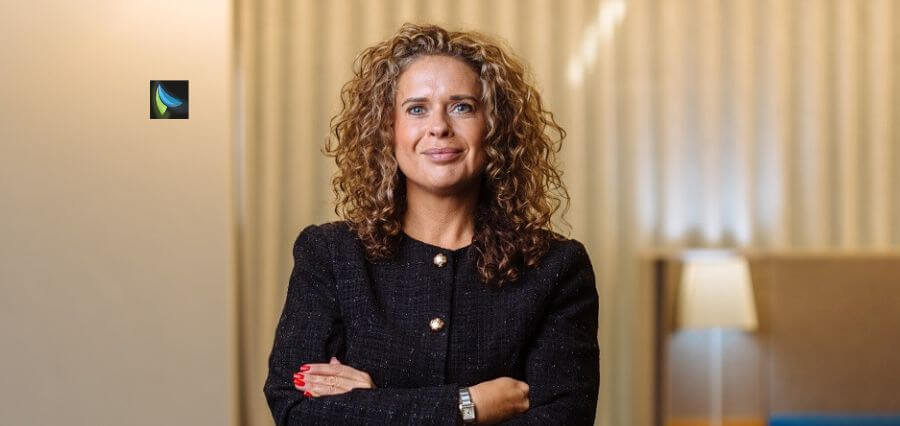The challenge of adopting an inclusive workplace culture is more pressing than ever. Many organizations today struggle to create environments where every employee feels valued and empowered to contribute their unique perspectives. Recognizing this issue, Eveliene Witjes, the Global Head of Human Resources at TiNDLE Foods, is leading the charge to transform workplace dynamics.
Eveliene firmly believes that diversity is not just a checkbox; it is the cornerstone of creativity and innovation. With over 20 years of experience in HR, she has honed her expertise in developing inclusive strategies that prioritize employee empowerment. Her mission is clear: to create a culture where every individual can thrive, pushing boundaries and questioning the status quo.
At TiNDLE Foods, Eveliene champions creative approaches that address the needs of workers, actively engaging in discussions that promote diversity and varied perspectives. Her hands-on leadership style fosters open communication and collaboration, ensuring that every voice is heard. By nurturing a culture of inclusivity, she is not only attracting exceptional talent but also cultivating an environment where employees feel inspired to bring their best selves to work.
As companies worldwide grapple with the complexities of modern workplace culture, Eveliene Witjes stands as an alarm of hope and change. Her dedication to building inclusive environments is paving the way for a future where every employee can reach their full potential, ultimately driving success for organizations and individuals alike.
Below are the interview highlights:
Can you please introduce yourself and share your career journey?
I’m an entrepreneur and Human Resources Management Specialist with over 20 years of professional experience; of which 16 years in core Human Resource Management roles. With a proven ability in developing an HR department from the ground up and in continuously managing the HR operations of start-up/medium and larger sized companies.
I’m holding a strong command in core HR functions such as Recruitment, Learning & Development, Performance Management, Employee Retention, Payroll, Onboarding and Succession Planning, Policies & Procedures, International Mobility, Health & Safety, Legislation and Legal mediation, Strategic annual planning and budgeting, Annual Taxation and have helped many different types of organizations with their transformation.
Could you please briefly introduce your company and its inception story?
At Next Gen Foods, we believe a new era of food is coming. An era where we are actively thinking about how we eat, how our food impacts our health and the planet, and that is more delicious than ever before.
We don’t want anyone to have to change what they eat; we just want to innovate how we produce and procure our favorite foods. And that’s where uniquely inventive food technology and the explosive power of plants come in.
That’s the ethos behind Next Gen Foods, and we’re going big with our very first brand: TiNDLE. Ridiculously good chicken made from plants. Launched in 2020 and already being savored around the globe, TiNDLE is a dining experience that will make you wonder why we ever needed birds to make chicken.
On top of its unparalleled taste and texture, TiNDLE has the pan-cuisine versatility that chefs look for— which not a lot of big-name chicken producers can claim.
We have expanded our product portfolio in the past 3 years, which is now available in foodservices and retail stores across Europe, the US, and Asia Pacific. We are operational in 6 markets globally at the moment, and also expanded our product category, with plant based dairy products on top of plant-based chicken and continue to grow and thrive.
Can you share some key milestones in your career that have significantly shaped your leadership style and approach to HR?
After moving to Singapore, I got the opportunity to familiarize myself with the Asian landscape, which has been a great milestone for me, as I have helped different types of organizations in the past with their growth, restructuring, and operational journey across Europe and the US, including short-term oversea assignments.
Working in Asia is completely different from various perspectives, not just employment law and regulations, which allowed me to become a global HR leader that now covers the full spectrum of HR across Europe, the US, and Asia-Pacific.
During my first opportunity with Glue Up in Singapore, a SaaS Tech start-up company that was originally based and operational in China and wanted to become a globally successful company, I’ve helped them to not only build up the HR function from scratch to support a global operational foundation holistically, but ensure a solid operational ground through which the company was able to expand and get operational from originally 20 countries to 60 countries during my 3 years tenure with the company.
What do you believe is the most essential role of a CHRO in an organization, especially in today’s rapidly changing work environment?
To stay as closely aligned to the business plans and changes they may need to incorporate or adapt to, as well as to their people. Ensure that both sides are thought through holistically and solidly enough to cover short- and long-term objectives.
How have you adapted your HR strategies to address the challenges posed by the pandemic and the evolving workforce?
Yes, absolutely, interesting enough, I started working on a new way of working and a flexible hybrid or remote work setting before the pandemic even started as part of our global mobility and growth plans; while forming a solid operational foundation for the company, this came all together at the right time, before the pandemic even started!
However, in my opinion, it’s an essential need for global companies or companies that are looking into expanding. Obviously, there were other concerns as well that occurred during the pandemic to manage for a short period of time.
How do you measure the effectiveness of your HR initiatives, and what metrics do you prioritize?
I wouldn’t want to call it my HR initiatives, as they are forming or coming together based on business needs and after careful consideration with all your internal and external stakeholders to come to the best option at that moment of time. I always try to implement things for the long term with the flexibility for growth and change, but I would never execute initiatives through a 2-eye principle only.
What are your top three priorities for the HR department this year, and how do they align with the overall business strategy?
At the moment, these are operational efficiency, retention management, and DE&I. These 3 are cornerstones for a good and healthy core business through any stage of growth or business optimization.
How do you approach talent management and retention in a competitive job market?
Invest in your people! L&D is still and, in my opinion, will always be ranked highly as part of retention management; specifically, Millennials and Gen Z would prefer L&D over a good base salary and benefits.
Various studies and questionnaires were done and continue to happen to look at companies’ attrition rates and measures. L&D is still ranked in the Top 3 amongst compensation & benefits.
Can you discuss the importance of collaboration between HR and other departments and how you facilitate that collaboration?
It is absolutely critical. Whether you are a small or large company, there is a misconception that large companies think it’s difficult to keep alignment and communication between departments flowing, which it is not, as it really comes down to your internal organizational culture and structure.
That starts from the beginning. I believe over-structuring is impacting your internal collaboration and work flows a lot. It is essential for a healthy company that goes through challenges, and even without, to review your internal structure at least once a year and question how effective your workflows and operations are.
Good collaboration between internal stakeholders increases your overall Productivity, Innovation and Adaptability across your functions, which are key requirements within an organization.
What role does technology play in your HR strategy, and how do you leverage it to enhance employee experience?
A lot, HR is heavily dependent on having support tools in place to help with all the operational day-to-day streams to cover each and every aspect of the HR spectrum, from onboarding to offboarding or retiring. There are a lot of tools on the market to help set up workflows and create visibility and support for the HR team, however, it can be a challenge to find the right ones that fit your company’s goals or needs while implementing them in a way to leave room for growth or change.
Employee experience is a good measure to leverage success through, but it should not be the only one, as the business will undergo change no matter how small or large a company is. It’s important to cover its succession from a 360-degree window. With AI coming into the workplace, it’s exciting to see how companies will start to leverage this as extra support in their day-to-day operations across functions and departments.
What are some common misconceptions about the role of HR that you would like to address?
Most organizations and employees have seen the shift in the HR function, which started along digitalization and became more radical during the pandemic when there became a sudden urge for companies to change their work strategy and policies. The HR function became less traditional as a support function only and more of a decision-making sweet spot for companies and their executives to work and align with before defining their business plan, and I’m truly hoping more companies include their HR executives in the final decision-making process when it comes to long- and short-term business plans.
To execute a successful business plan, the executive team needs to be aware of what is playing on the ground, day-to-day; without that detailed insight or analytics on a company’s pain points, you can’t match or try to match the road map you want to set your company’s success on.
What advice would you give to aspiring HR leaders looking to make a significant impact in their organizations?
Impact can be looked at from so many different perspectives, whether it’s a personal or business impact. It’s important not just for HR professionals to always try to stay open-minded, question yourself as every situation and phase is different, evaluate and collaborate professionally with internal and external stakeholders, stay alert on what is happening in and outside of the organization, try and stay on top of analytics and trends, and last but not least, listen to your gut feeling. Decisions we tend to make with our minds do not always turn out to be the best ones in the long run.



















